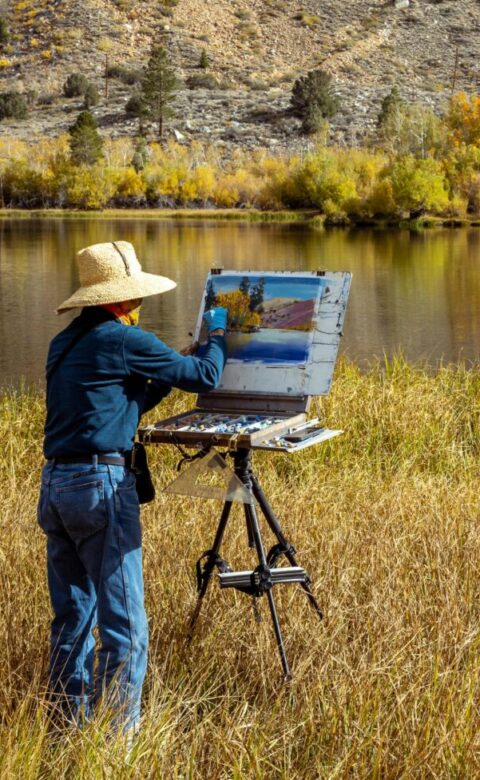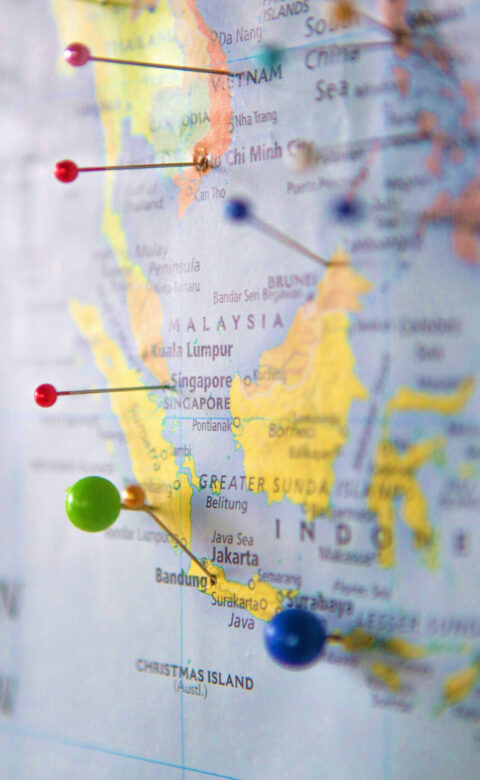“Be yourself – everyone else is already taken.” This ode to authenticity is quite clever, just the kind of thing a famous wit like Oscar Wilde would write, and a quick internet search turns up thousands upon thousands of results saying that it is indeed his. But there’s only one problem: we have no evidence he authored it. Yes, he did express similar sentiments in other ways, but in those seven pithy words? Never happened.
Misquoting historical figures is common practice online and in social media, as it’s very easy for an appealing turn of phrase like the above to catch fire and spread. Once it’s posted, copied, and duplicated some more, with a reach that grows exponentially, it becomes difficult to separate the truth from the fiction… and at some point, it’s widely accepted at face value that the words (incorrectly) put in the mouths of Wilde, or Gandhi, or Sun Tzu, or Shakespeare were indeed things they actually said.
This assumption that what we’re told must be true when it’s repeated in a respected publication or penned by a well-known author extends to travel writing, long a murky area when it comes to stretching the truth. Ben Cocking, Senior Lecturer in Media & Culture at the University of Roehampton in the UK explains in an article published in the JOMEC Journal;
“Travel writing has always had a complex and contentious relationship with the truth. It cannot offer readers the reality of the journeys its authors (allegedly) undertook since, quite simply, the reader was not there. Rather, readers must content themselves with narrative accounts of journeys where markers of authenticity stand in for an inaccessible truth.”
So let’s look at these markers of authenticity. Have you ever been reading a story about a place you know like the back of your hand — your own hometown or somewhere you’ve lived for a good while — only to spot inconsistencies with reality? Has the geography been mangled, are ‘popular’ places mentioned that have been closed for some time? Are descriptions bland, unspecific, and generic? Does it just feel inauthentic, and create a growing suspicion that the person who wrote it surely never set foot there themselves?
As we examine this, it’s worth mentioning that authenticity is very much in the eye of the beholder. Each of us arrives at a destination with our own perceptions and points of view, informed by the lives we’ve lived up to that point. No two good writers would describe a place the same way, and we wouldn’t want them to. But a writer’s observations will be coloured by their age, place of birth, experiences, and the openness of their mind and heart. In an ideal world, a travel writer brings along a childlike willingness to try new things, learn lessons, and shed preconceptions.
Historically, this wasn’t always the case. People from some parts of the world had fantasies about other parts of the world. They had already decided what they’d find in these ‘storied’ locations before arrival, and perhaps didn’t make the most of their visit as a result. Instead, they focussed on a box-ticking exercise encouraged by the same old stories.
While colonialistic attitudes, questionable journalistic practices, or possibly even faulty memories can be at play, at least until very recently human beings have been involved in the creation process (for better or worse). But now, artificial intelligence is coming to the fore, and riding to the rescue for publications’ squeezed budgets. AI is cheaper and easier to manage than those pesky human writers. So the pitfalls of inauthenticity have become no longer a case of a person not visiting a destination, or giving us an inaccurate picture; but of no person in the picture at all.
What’s the harm in this, you ask? So what if ChatGPT wrote a guide to Dublin, rather than someone who has lived there for well over a decade, isn’t it still a useful tool? Not necessarily.
In a discussion forum on tourism network Travel Massive, the question was asked: “Could AI content generators replace travel writers?” Freelance writer Sherri Telenko is strongly against the notion: “No. What about credibility? Journalistic principles? Honest recommendations based on experience? Posting an article generated by AI stating, ‘Hey, I went to Dublin and stayed at X hotel’ when you really didn’t is a lie. And even if you did go, this isn’t your experience. I know travel writing has been on a slippery slope for a while, but when did it start being OK to fill sites with fake content?”
Here at Resonate, we couldn’t agree more. Though any hack writer (or AI substitute) can churn out questionable content at an impressive rate, we know that intimate local knowledge, and genuine recommendations based on experience, are essential to authentic travel writing that readers can trust. So is the human touch.
This is what motivates us. Every word on this site is written by real people passionate about truthful travel stories. In some cases, they’re describing their daily lives and their home place, and in others, they’ve had a transformative experience as a visitor and want to share it with the world. They tell us of amazing people and take us to astonishing places. We collaborate with local voices and amplify authentic travel inspiration because we believe that there’s nothing like a genuine tale well told, and there’s no substitute for the real thing.







